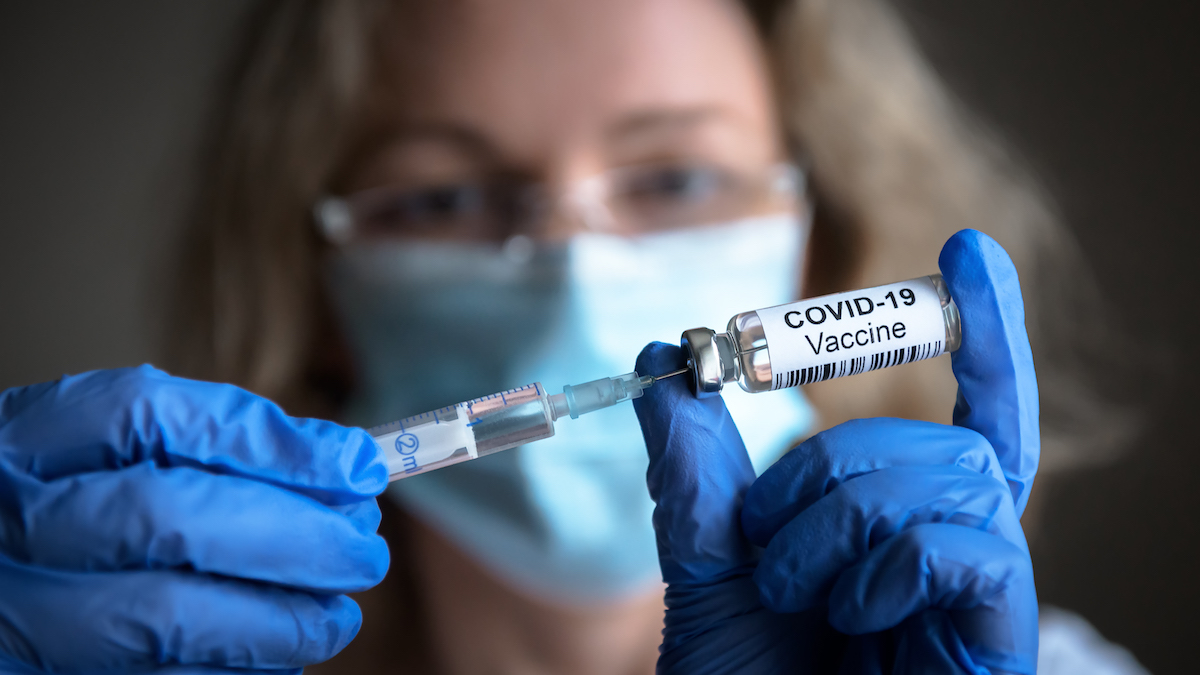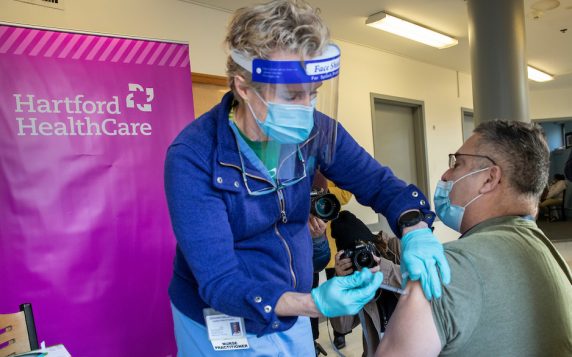If you haven’t been vaccinated already, your time is coming. Anyone over 16 years old who lives or works in Connecticut is now eligible for a COVID-19 vaccine.
The Nutmeg State ranks among the top three in most vaccines per capita, which means the state probably also ranks among the top three in vaccine stories. As in: Did you have any side effects?
It’s impossible to predict if you’ll experience side effects from your COVID-19 vaccine. If you do, says the Centers for Disease Control and Prevention, they’ll last 12 to 48 hours.
Ninety percent of side effects fall inside this window, says Dr. Henry Anyimadu, an Infectious Disease Specialist at The Hospital of Central Connecticut in New Britain. And most, he says, occur after the the final dose, whether the second dose of vaccines currently available from Pfizer-BioNTech and Moderna or the single-dose Johnson & Johnson vaccine.
“The reason we get those reactions is because your immune system is ramping up,” says Dr. Anyimadu. “You get the initial dose, which is the primer dose. That wakes up your immune system. The second dose is more of a booster that kicks up your immune system even more. You will see the signs and symptoms.”
Here are typical side effects, according to the CDC, which can happen anywhere between one and seven days of your vaccination:
- Pain, redness and swelling on the arm at the site of the injection.
- Tiredness, headache, muscle pain, chills, fever and nausea.
“When you think about what COVID can do to the body, it’s pretty minimal,” says Dr. Steven Valassis, chairman of emergency medicine at St. Vincent’s Medical Center in Bridgeport.
Some less common reactions:
- Swollen lymph nodes.
- Facial swelling.
- Bell’s palsy (temporarily affecting facial muscles.)
- Dizziness.
- Brain fog.
- Strange dreams.
- Anaphylaxis (a severe allergic reaction).
The CDC says anaphylaxis caused by the COVID-19 vaccine happens only in up to five of every 1 million people vaccinated, typically within 30 minutes of the injection. As a precaution, The National Institutes of Health said April 7 it had started a clinical studies on the the two vaccines that use mRNA technology, Pfizer-BioNTech and Moderna, to determine if people with a history of allergic reactions or those diagnosed with a mast cell disorder might be at increased risk.
To relieve a headache, minor aches or pain or other common mild side effects, Dr. Anyimadu recommends conventional analgesics such as Tylenol and ibuprofen. (Do not take these medications before your vaccination.)
Call your doctor if:
- Redness or tenderness at the injection site gets worse after 24 hours.
- The side effects do not go away after a few days.
- And if you think you’re having a severe allergic reaction, call 911.



